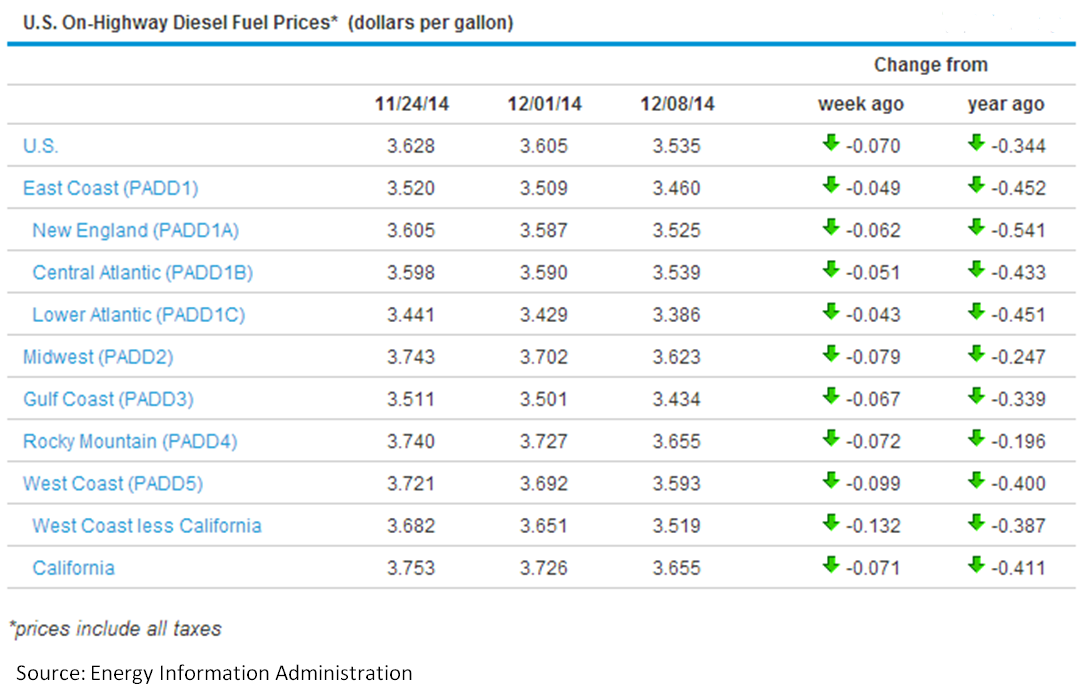Logistics

December 9, 2014
Low Diesel Prices Good—Regulations Not So Much
Written by Sandy Williams
Low oil prices are giving truck carriers a break through diesel rates that are at their lowest level since February 2011. The average U.S. diesel price was $3.535/gallon as of December 8, 2014, a drop of $.34 from a year ago. Fuel savings add up during winter months when storms can cause delays and idling that drive up operating costs.
The drop in fuel costs does not equate to lower freight costs, however. During the week of Nov. 23-29, average rates increased 2¢ for vans and 3¢ for reefers while flatbed rates remained stable, week over week, according to DAT Trendlines. Spot rates for flatbeds averaged $2.31 per mile. Winter is a typically a slow season for flatbed freight and load volume declined 34 percent in November compared to October.
On the regulatory scene, the American Trucking Association and Truckload Carriers Association are intensifying efforts supporting an amendment to the appropriations bill that would suspend the current 34-hour restart provision in the hours of service rule and revert to the pre-2013 restart rules. Congress is facing a December 11 deadline for passing the appropriations bill.
The amendment calls for the Federal Motor Carrier Safety Administration (FMCA) to do a comparison study of work schedules and driver fatigue under the old and new restart rules as well as comparing crash and critical safety issues.
ATA says the 34-hour restart provision reduces productivity and puts more trucks on the road during congested periods. The FMSCA contends the provision will improve safety by ensuring drivers are well rested.
Advocates for Highway Safety want the amendment stricken from the bill and calls it an “assault” on the safety of drivers that will increase working and driving hours for truck drivers.
ATA President and CEO Bill Graves said the language in the amendment does not eliminate the use of the provision. ““Instead, it would suspend unwarranted restrictions on the use of the provision while FMCSA conducts a mandated study of the net safety impacts of them.”







